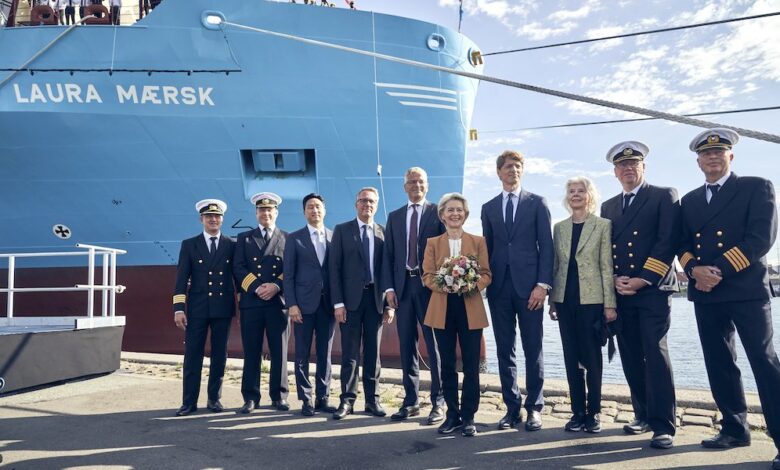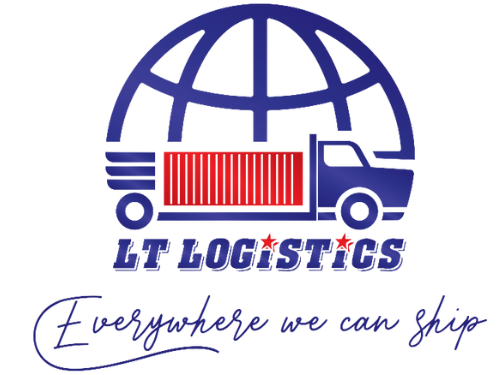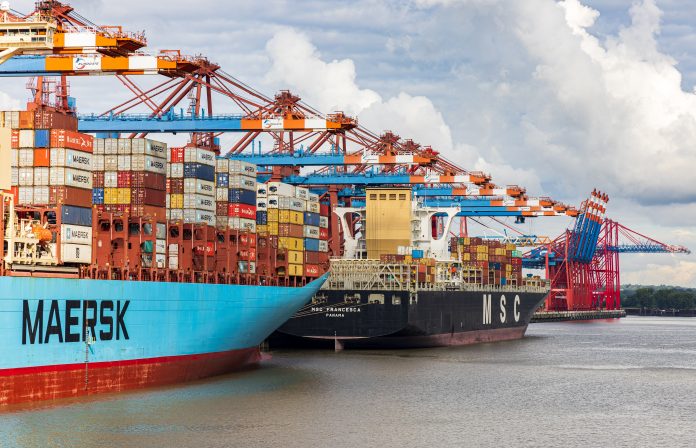Today is a banner day on Maersk’s decarbonisation path with Ursula von der Leyen, the president of the European Commission, in Copenhagen for the naming of the Laura Maersk, the first in a series of methanol-powered boxships Maersk has contracted yards in South Korea to build.

The 2,100 teu Laura Maersk was built at Hyundai Mipo Dockyard. It will serve trades in the Baltic area. The ship’s name is a nod to the Laura steamship, the first vessel to bear the white seven-pointed star Maersk emblem back in the 1880s.
Also in attendance at the Danish capital was Greg Dolan, CEO of the Methanol Institute, who commented that today’s naming ceremony serves as a demonstration that the shipping industry is embracing methanol as a sustainable fuel fit for the energy transition.
Aware of the rising demand for methanol – not just in shipping, but from other industries – Maersk has been beefing up its global access to the fuel.
“Replacing the existing use of fossil methanol with green methanol, and also meeting the growing demand from the use of green methanol as a fuel, requires a step change in the global production capacity of non-fossil methanol,” A.P. Moller Holding, Maersk’s investment arm, stated in a release today.
Towards 2050, the annual demand for methanol could triple to some 300m tonnes, according to Maersk projections.
Applauding Maersk’s industry-leading ship naming ceremony today, Andrew Craig-Bennett, Splash’s lead columnist, wrote: “Maersk is to be commended because behind this ship it has another 20 green methanol burners planned and on order. It is doing the right thing and is showing up everyone else. But for every Maersk there will be 20 owners thinking about how to dodge the new regulations once the regulations are promulgated.”
Cre: Splash247

